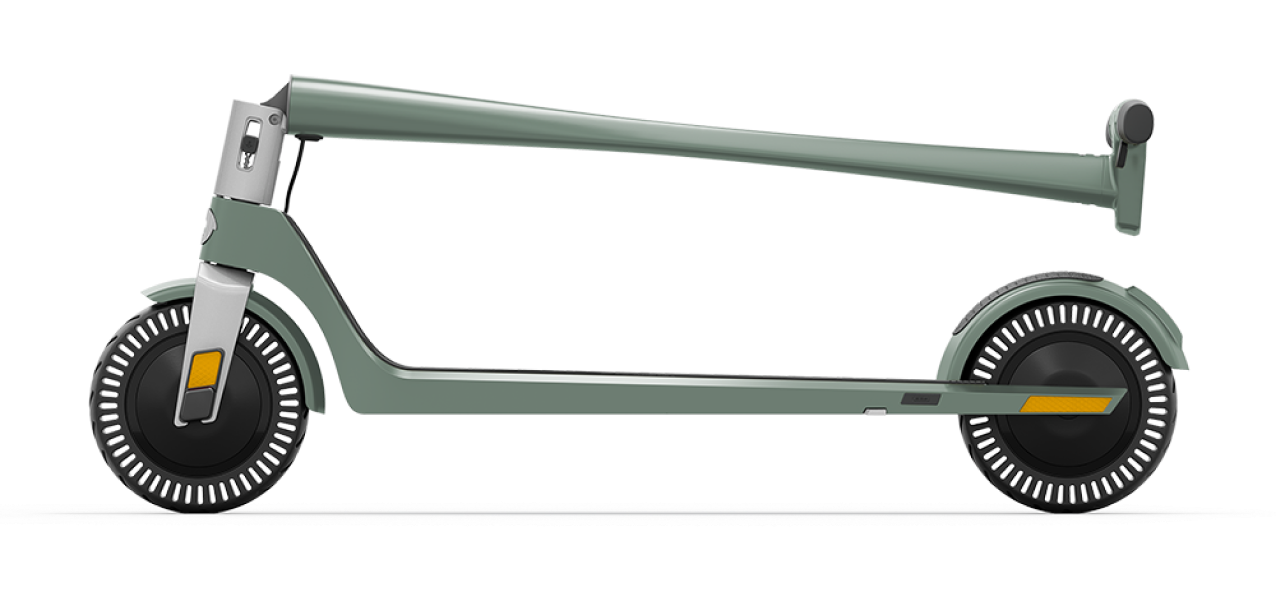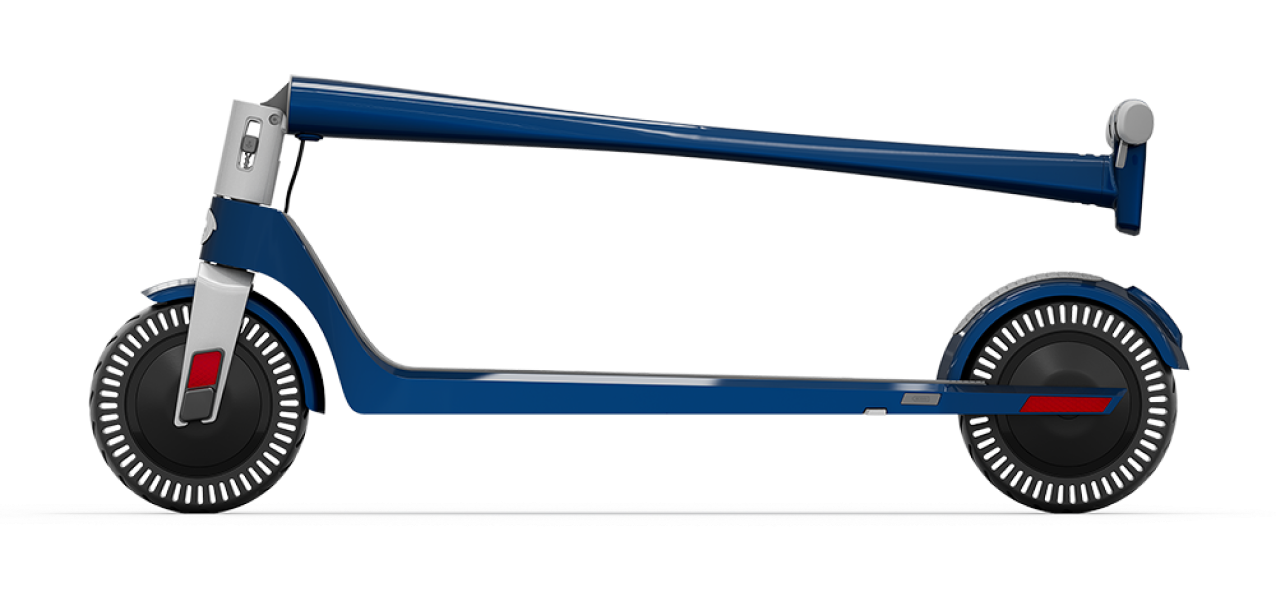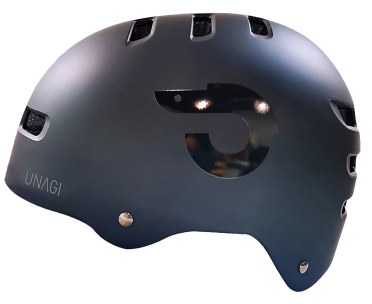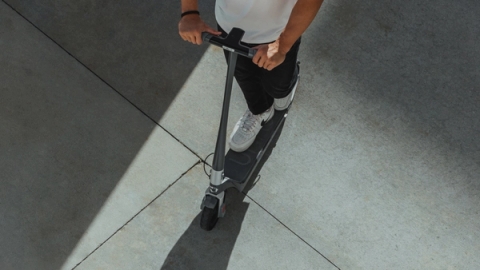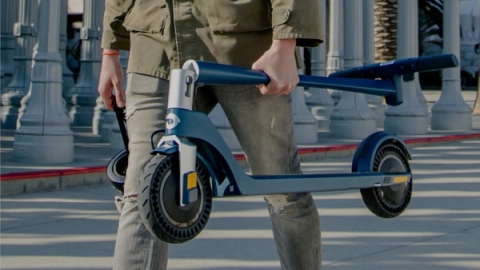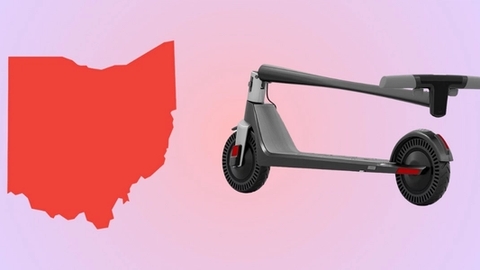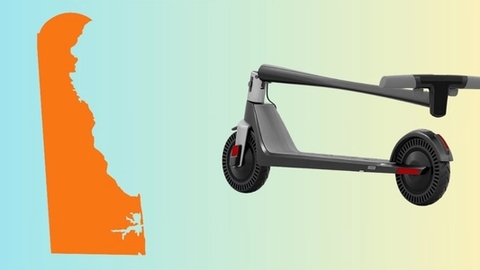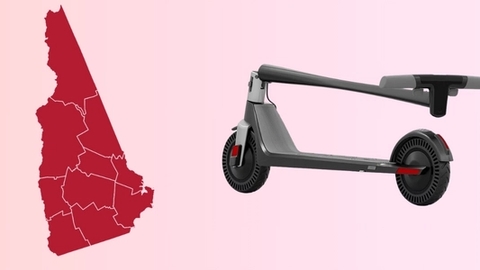Micromobility is here to stay, and it’s changing how we experience urban life for the better. With Unagi’s membership program, you can enjoy all the benefits of a top-tier electric scooter without the sky-high price of ownership or the inconvenience of ride-sharing.
Sometimes, the hardest choices aren't between good and bad options but between two good ones that serve different needs. That's the case with electric bikes and electric scooters. I've spent hundreds of hours on both, and the most striking thing I've learned is that there isn't a clear winner. Both come with their pros and cons, and deciding which one is right for you will depend on how you want to use it , lifestyle, and budget. So let’s break it down.
Quick Comparison Table: Electric Scooter vs. Electric Bike
| Feature | Electric Scooter | Electric Bike |
|---|---|---|
| Portability | Lighter with most between 20–70lbs, easier to fold and store. | Heavier (40–75 lbs), bulkier, and harder to carry, though some foldable models exist |
| Price Range | $300–$3,000+ | $1,000–$5,000+ |
| Comfort | Less comfortable on rough terrain. | More comfortable due to saddles, suspension, and ergonomic design. |
| Storage | Minimal storage | Lots of storage options |
| Cost | Cheaper overall | More expensive |
| Top Speed | 12.4 - 40 mph (up to 60 mph on some fast electric scooters) | 20-28 mph |
| Range | 15-30 miles (up to 50 Miles for long commute electric scooters) | 20-50 miles, with pedal assist |
| Maintenance | Fewer moving parts, limited repair options | More components to maintain, widely available parts |
| Fun | More thrilling (offers exhilarating, fast-paced urban rides). | More practical |
| Hill Climbing | Good but limited by motor power only | Excellent (pedal assist + motor power) |
| Learning Curve | Low | Low (if you can bike) |
| Terrain Suitability | Best on smooth urban roads, struggles with rough surfaces. | Can handle a wide range of terrains, including hills and trails. |
| Fitness | Minimal | Offers cardio benefits |
Learning Curve
Neither is particularly hard to learn, but they're easy in different ways. E-bikes build on existing knowledge. If you've ever ridden a conventional bike (and most people have), you already know 90% of what you need to know. The only new thing is managing throttle control and motor assist. Your body already knows the motions - the balanced position, the pedaling rhythm, the way to lean into turns.
Electric scooters are different. Most people haven't ridden anything quite like them before, but that turns out not to matter much. The learning curve is remarkably shallow. Stand on the platform, hold the handlebar, press throttle, and manage acceleration. That's basically it. The first five minutes might feel wobbly, but by minute ten most people are zipping around confidently.
If you want to know more about riding an electric scooter like a pro, check out our article on Beginner's Guide To Riding Electric Scooters.
Portability: How Easy Are They to Carry Around?
The first big difference hits you the moment you need to carry your personal electric vehicle or fit it into tight spaces—electric scooters come out on top. An average e-scooter weighs about 20-70 pounds if we are pushing it and folds neatly into something you can carry upstairs or toss in a car trunk. Take the UNAGI Voyager for instance: it only weighs 29.6 lbs which means you can easily carry it around and it folds to a compact size of only 37.8 in (L) x 16.5 in (W) x 15 in (H).
Electric bikes are usually 50-75 pounds and, unless you get a folding model, remain bike-sized. Even foldable e-bikes aren't as easy to lift or carry.
Verdict: The spatial economics of dense cities favor the electric scooter. If you live in an apartment or frequently use public transport, they are the more practical option. Electric bikes are best if you have a garage or don't need to move it around frequently.

Multi-Modal Integration: How Do They Fit In?
How these personal electric vehicles fit into broader transportation networks matters hugely. Electric scooters win at combining with public transit—they're easier to carry onto trains or buses.
E-bikes are trickier as they are big. They're great as standalone transport, but mixing them with public transit gets complicated. You're at the mercy of whether your bus has a rack or if there's room on the train. E-bikes work better with your personal car, where you can mount them on standard bike racks. The upside is that many electric bicycles have enough range that you don't need to combine them with other transport modes.
Verdict: Electric scooters take the lead when it comes to integrating with public transportation, thanks to their portability.
Comfort , Ride Quality and Stability
It's not as simple as "sitting versus standing" - there are deeper ergonomic factors at play.
E-bikes give you a familiar seated position, which most people find comfortable for longer rides but bike seats can become uncomfortable after an hour or so, even with good padding. That's why many e-bike riders stand up periodically to relieve pressure.
There are E-scooters that come with seats but as much as they give you some comfort as with electric bikes, the smaller dimensions can make the cockpit feel cramped for electric scooter riders. Now for the other electric scooters, standing might seem more tiring, but it actually allows for more natural position changes. You can shift your weight, and change your stance while riding. But standing for long distances will definitely be uncomfortable and tiring too.
But there's more to comfort than just position. E-bikes have larger wheels - typically 20 inches or more - which roll over bumps more smoothly than e-scooters' 8–11 inch wheels. This makes a huge difference on rough roads. An average e bike might feel like riding over ripples while an e-scooter translates every crack in the pavement directly to your joints.
That's not, however, to say that electric scooters don't offer a comfortable ride—they do. Many high-performance models even feature large pneumatic tires and suspension systems, though at the cost of a larger electric vehicle that may not be easy to fold or carry and can weigh as much as a commuter e-bike. For most people, these heavy add-ons defeat one of the primary reasons for owning an electric scooter—convenience. Most lightweight, durable scooters like Unagi's Model One—which comes in at under 30 lbs in both its single and dual motor versions—ride smoothly and comfortably over level pavement.
For short trips (under 2 miles), most people find e-scooters more comfortable - no pedaling, no worries about pants getting caught in chains. This pattern shows up clearly in rental data: people tend to ride shared e-scooters for shorter distances than shared bikes. For medium trips (2-5 miles), it's largely personal preference. But for longer trips, electric bicycles tend to win out thanks to their better ergonomic designs, stability, and shock absorption.

Verdict: Electric bikes win here for comfort and stability. If you need a steady ride or plan to cover long distances, the E-bike is a better bet. E-scooters excel for shorter trips on smooth city streets.
Range and Charging: How Far Can You Go?
Most electric scooters offer a range of 15 to 30 miles per charge. Long-range commuter scooters might stretch beyond 50 miles, but they'll cost you extra.
E-bikes typically cover similar distances on a single charge, but they have a crucial advantage: when the battery dies, you can still pedal. That means your range is essentially unlimited—at least until your legs give out. With an e-scooter, once the battery's drained, you're left with an awkward kick scooter.
E-bikes also often come with removable batteries, making charging more convenient. You can bring the battery inside to charge instead of hauling the whole e-bike. Most electric scooters require you to bring the entire electric scooter to an outlet—not a particularly painful setup, either.
Verdict: E-bikes win this one, especially for longer commutes. The ability to pedal when the battery dies means you'll never be truly stranded.
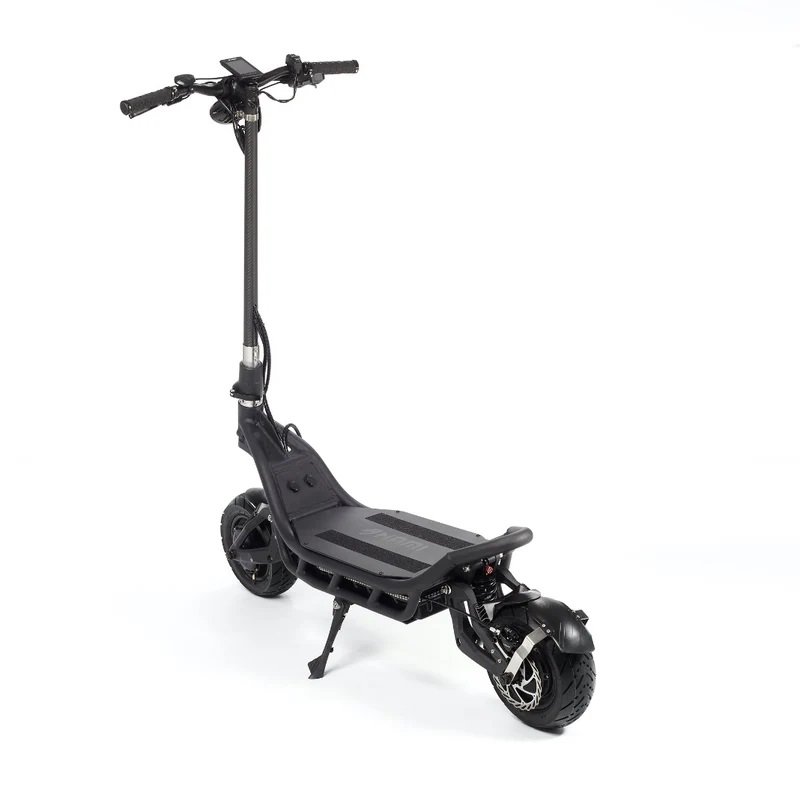
Maneuverability and Parking
E-scooters shine in tight spaces—they're essentially a slim board with wheels. You can slip between cars or through sidewalks (where legal), handle narrow bike paths, and change direction quickly. Electric bikes need more room to breathe. They're wider, longer, heavier, and have a larger turning radius, which makes direction changes a bit more challenging in city traffic.
Parking is another story - e-bikes need proper bike racks or significant wall space, while an electric scooter can tuck into corners or slide under desks.
Verdict: For pure maneuverability in tight urban spaces, electric scooters win hands down. Their compact size and quick turning ability make them ideal for navigating crowded city streets.
Maintenance: Which Is Easier to Keep Running?
Electric bikes come with gears, chains, etc., all of which need regular attention. The good news is that regular bike shops can service them easily since they share many parts with traditional bicycles.
Electric scooters, on the other hand, have fewer moving parts, so they require less upkeep overall. But if a proprietary component fails, repairs can become a challenge.
Verdict: Electric scooters are simpler to maintain day-to-day, but e-bikes benefit from readily available parts and more service options. But, when it comes to repairs, most places that handle e-bikes can fix scooters as well.
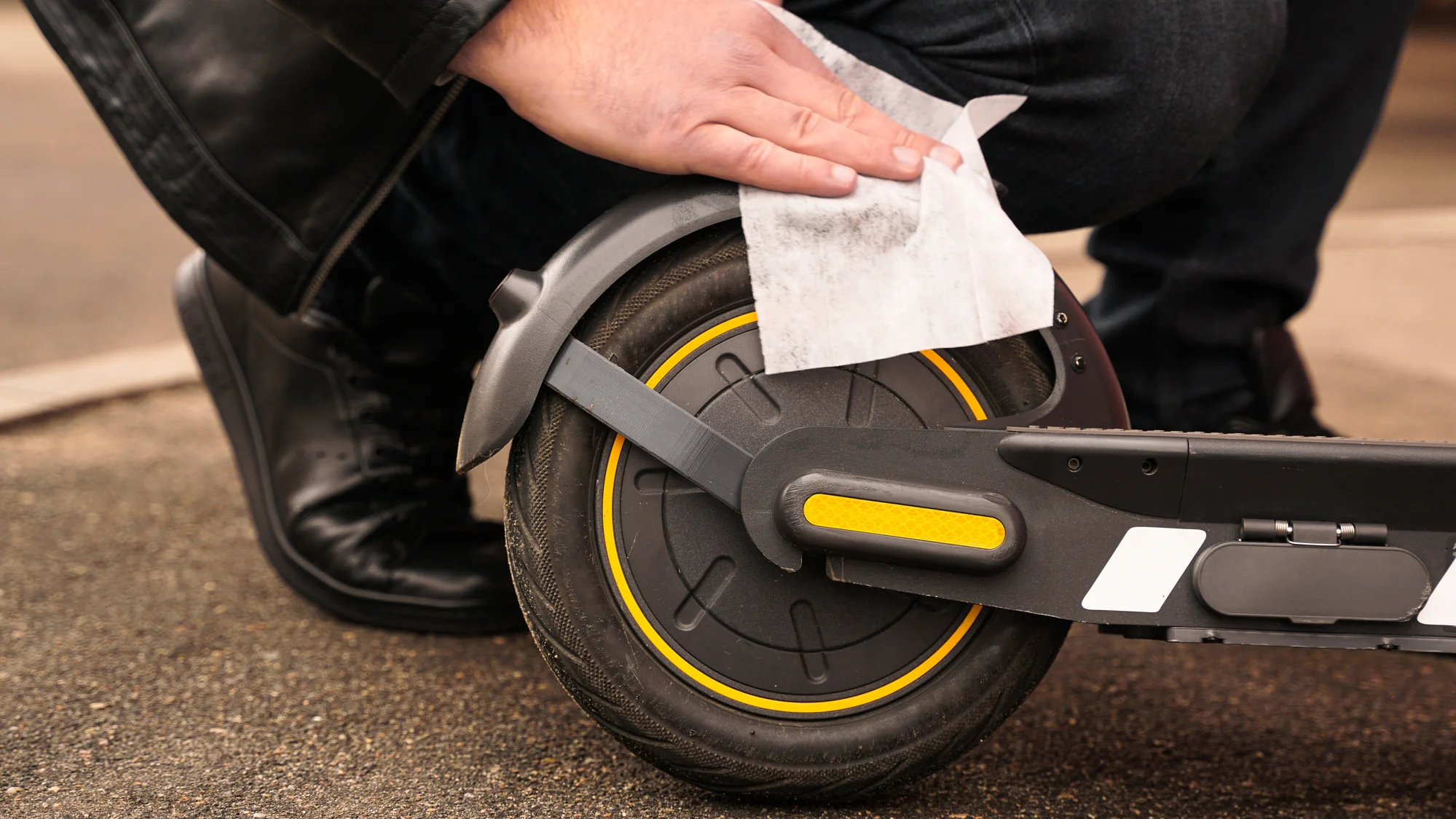
Storage Capacity: Need to Carry Stuff?
If carrying groceries, work equipment, or bags is part of your routine, e-bikes shine. They can be fitted with baskets, panniers, and racks to hold multiple items.
Electric scooters, by contrast, offer limited storage options—usually just a small bag attached to the handlebar or a backpack on your back. That said, there are ways to modify your average electric scooter to carry more; check out our article on the best e-scooters for carrying stuff.
Verdict: E-bikes win. If carrying things is important, they are the way to go. E-scooters can work for minimal cargo needs but aren't designed for hauling.
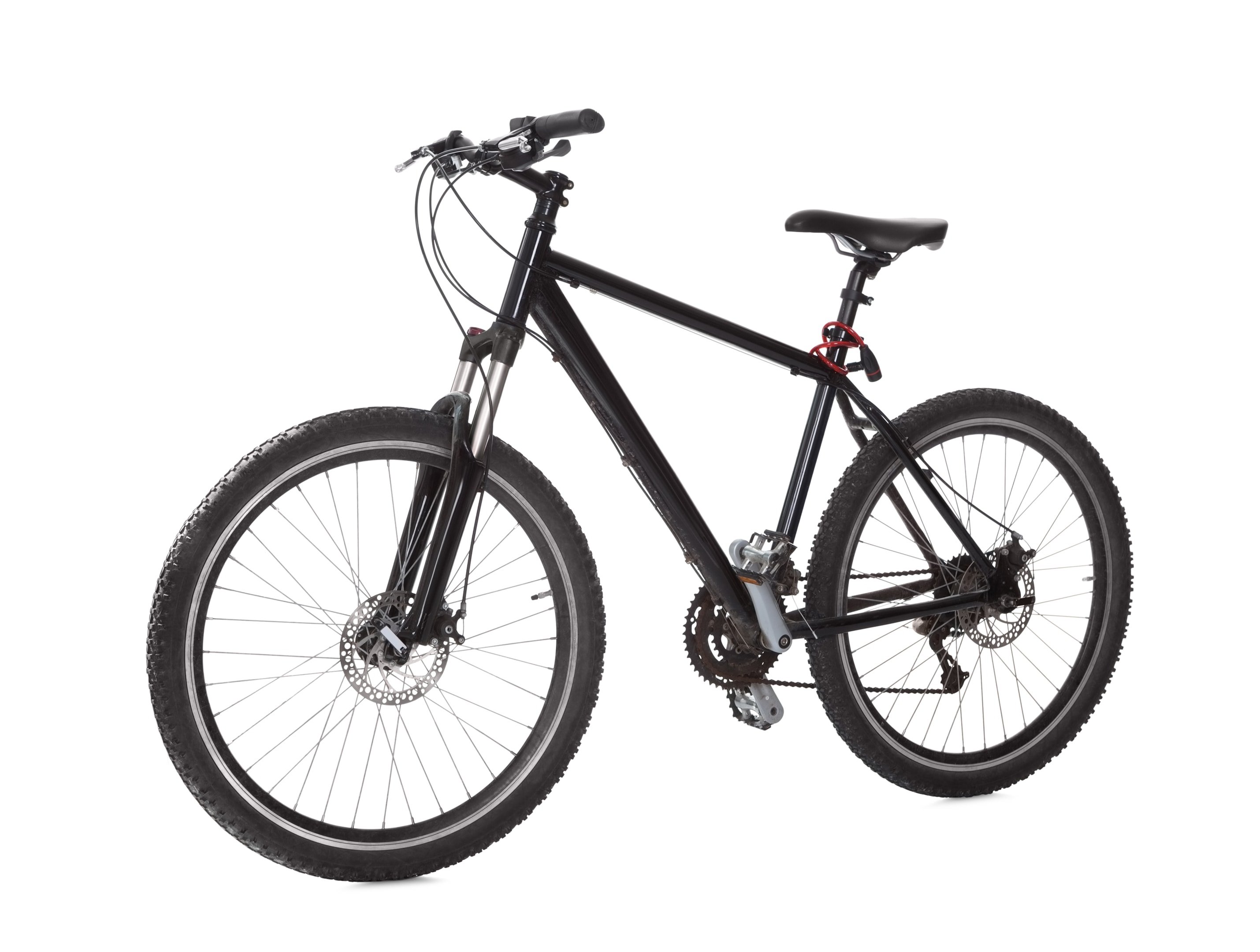
Cost: Which Offers Better Value?
When it comes to your wallet, e-scooters generally take the lead. You can get a solid electric scooter that'll get you around town for under $1,000. Electric bikes are pricier from the start, usually $1,500 and up. If you're looking at high-end models, you could be spending as much as a used car.
- E-scooter: Lower starting price, but high-performance models can get pricey.
- E-bike: More expensive upfront, but may use standard bicycle parts, which are widely available and relatively cheap to replace.
Verdict: If cost is a concern, electric scooters are the cheaper option.

Performance
E-bikes are generally more versatile, performing well on different terrains like trails, hills, and rough roads. Plus, you can pedal to assist the electric motor, making them excellent for hilly areas. Electric scooters, on the other hand, are better suited for flat urban environments, with performance heavily dependent on battery size and motor power.
Scooter manufacturers follow what you might call the "sports car model" when pricing e-scooters: the more you pay, the more power you get. Entry-level scooters around $600 typically max out at 15 mph. But spend $2,000, and you can get a dual-electric motor beast that hits 40 mph or more. The progression is almost linear—more money equals more speed and power.
E-bikes follow a more nuanced pattern. Across the spectrum of prices, they offer remarkably consistent core performance. What changes with price isn't primarily speed; it's the quality of components, build materials, and the overall riding experience. More expensive e-bikes often pack larger batteries and electric motors , making them more capable on challenging terrain, especially hills.
Verdict: For pure speed and performance, e-scooters offer more options and higher potential, especially in the higher price ranges—which are still a bit lower than those of high-end e-bikes. But for all-around performance and adaptability to different conditions, e-bikes take the crown.

Fun Factor: Which One is More Enjoyable?
Electric scooters have a kind of immediate joy that's hard to explain until you've experienced it. Standing upright while gliding through streets feels like surfing or snowboarding - there's a natural playfulness to it.
E-bikes, while enjoyable, lean more toward practicality. They're great for getting from point A to point B efficiently, but they don't quite capture that same sense of exhilaration.
Verdict: Scooters win for sheer fun.
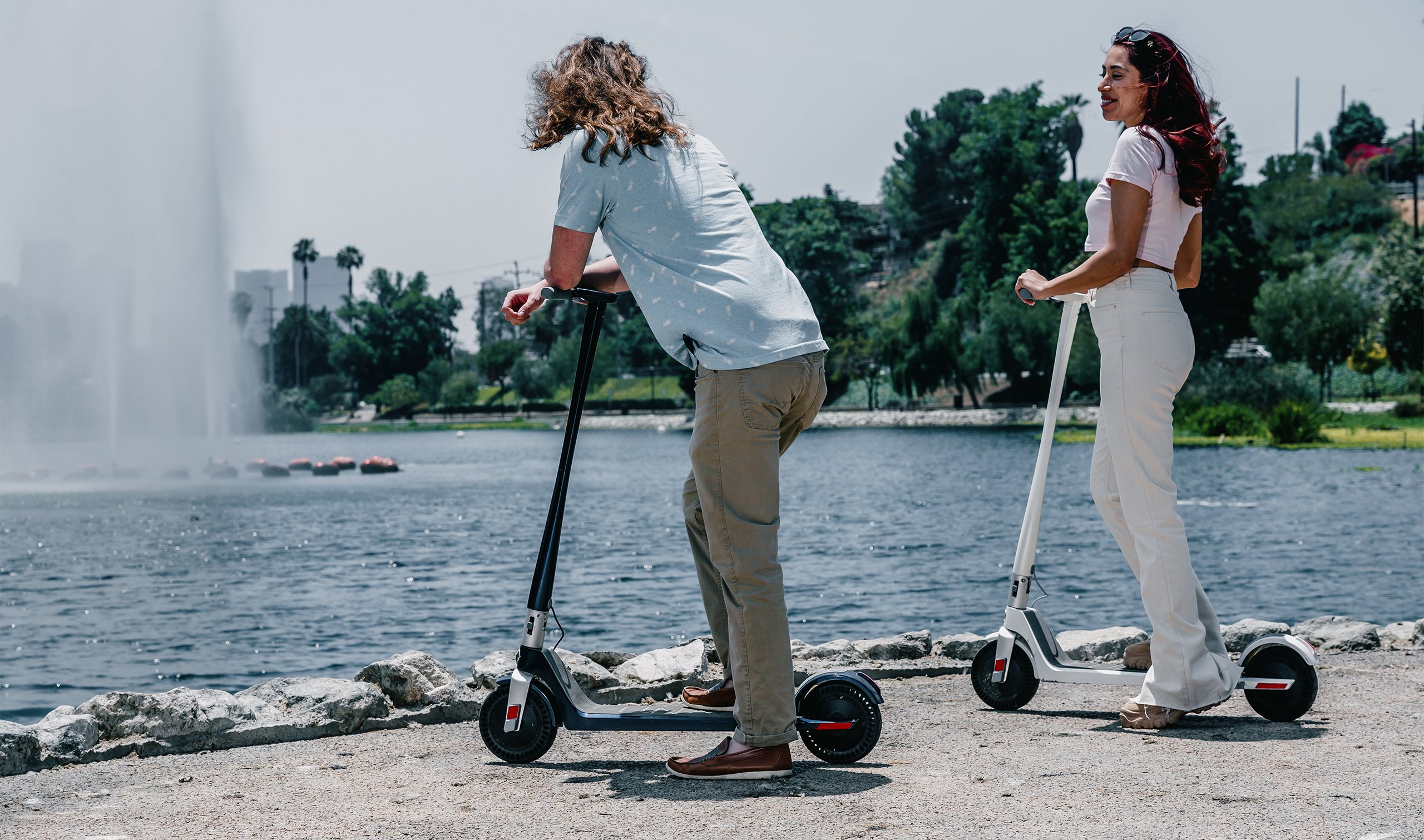
Fitness: Which One Keeps You Active?
E-bikes give you the option to pedal, so you can get some exercise even when using the electric motor. This means you can incorporate cardio into your daily routine without much extra effort. E-scooters, in contrast, provide minimal exercise; you're essentially standing still as you ride. For some people, particularly commuters in office clothes, this is exactly what they want. No sweat on the clothes.
Verdict: If staying active matters to you, electric bikes take the lead.

Safety Considerations
E-bikes position you higher off the ground, roughly at the same height as a motorcycle, making you more visible to cars. Plus, they typically come with better lighting systems and reflective surfaces built in.
Electric scooters also feature good lighting and reflectors. You can also boost your visibility by wearing reflective clothing or adding extra lights. But there's no getting around basic physics—a smaller target is harder to spot. Also, having the lighting lower to the ground makes it harder for drivers to see you, especially in their blind spots.
Legal Framework
E-bikes generally fall under clear legal frameworks—they're mostly grouped with bicycle laws in most places. You might assume that if regulations exist for electric bikes, they would also cover electric scooters, but that's not always the case. E-scooters often exist in a grey area. This can be both good and bad—more freedom, but also more uncertainty about where and how you can ride. Some major cities welcome them, others ban them outright, and many are still figuring out how to regulate them.
If you're unsure about the laws in your area, you can check out our article on Electric Scooter Laws U.S 2024 to see regulations across different states.
Electric Scooter vs. Electric Bike: Which One Should You Choose?
In the end, choosing between an electric scooter and an e-bike comes down to your personal needs. Think about what matters most to you.
Choose an E-scooter if:
- You need something highly portable.
- You live in an apartment or have limited storage.
- You want to combine it with public transit.
- You're on a tighter budget, especially for entry-level models.
- You prioritize fun and maneuverability over utility.
- You don't need to carry much cargo.
- You mainly ride on smooth, paved surfaces.
Opt for an E-bike if:
- You need to carry groceries or cargo.
- You want the option to pedal for exercise.
- You frequently tackle hills or rough terrain.
- You need better stability and all-weather capability.
- You prioritize versatility and range.
- You don't mind higher maintenance requirements.
The most telling pattern I've noticed is that your environment often decides this for you. Many people who choose to purchase an electric bike live in low-density areas with lots of roads and trails and longer distances to cover. Scooter buyers, on the other hand, might tend to live in large cities where lower speeds and ranges are worthy tradeoffs for convenience, portability, and maneuverability.
But all in all forget about specs and stats. Think about your daily life. The best choice isn't about what's technically superior - it's about what fits seamlessly into your routine. Sometimes the "lesser" option on paper turns out to be exactly what you need in practice.
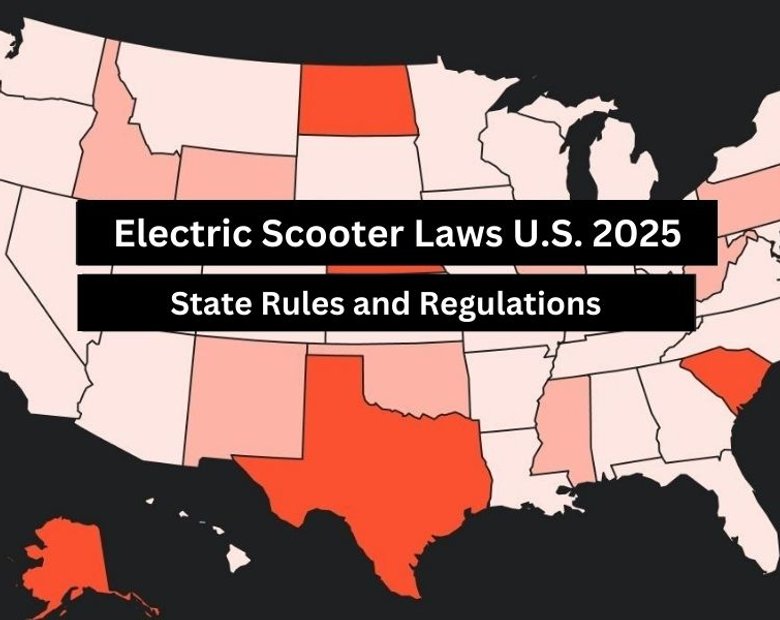
Stay current with the latest U.S. electric scooter laws in our 2025 guide. Updated annually since our first comprehensive guide, ensuring you have the most recent state and city regulations to ride responsibly”
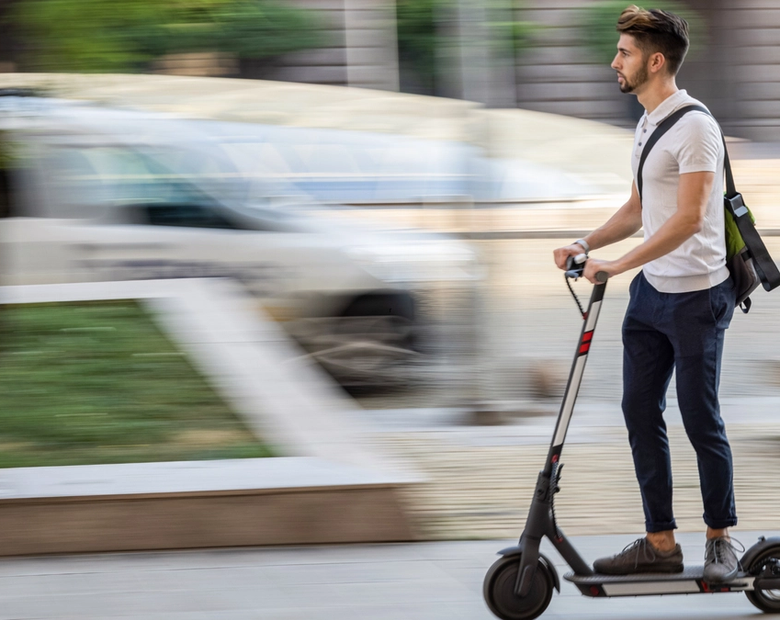
The Slack Core 920R is currently the fastest electric scooter in 2025 that you can purchase without the need for pre-order.
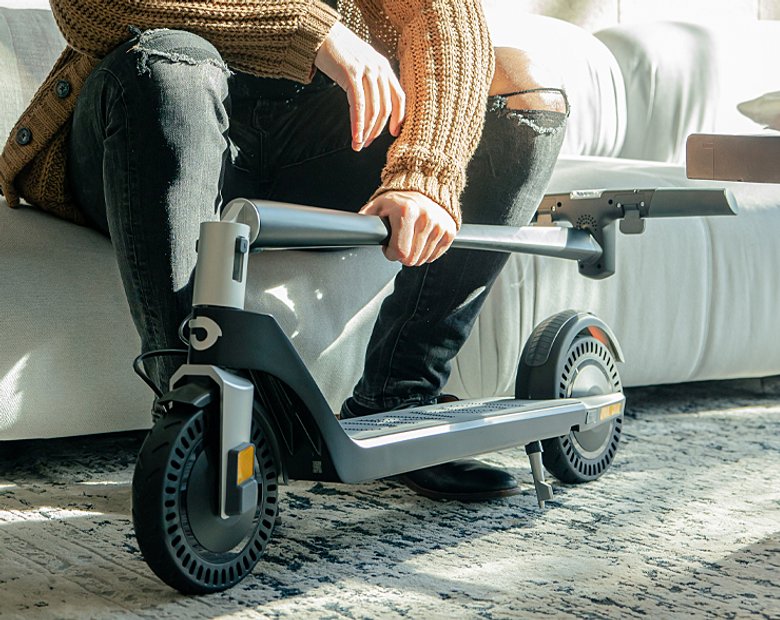
Our selection of the best electric scooters 2025 spans the fastest e-scooters to the most portable ones, the ones designed for city riding and off-road, the best scooters for rain, budget electric scooters for students, and more powerful ones for skilled riders.
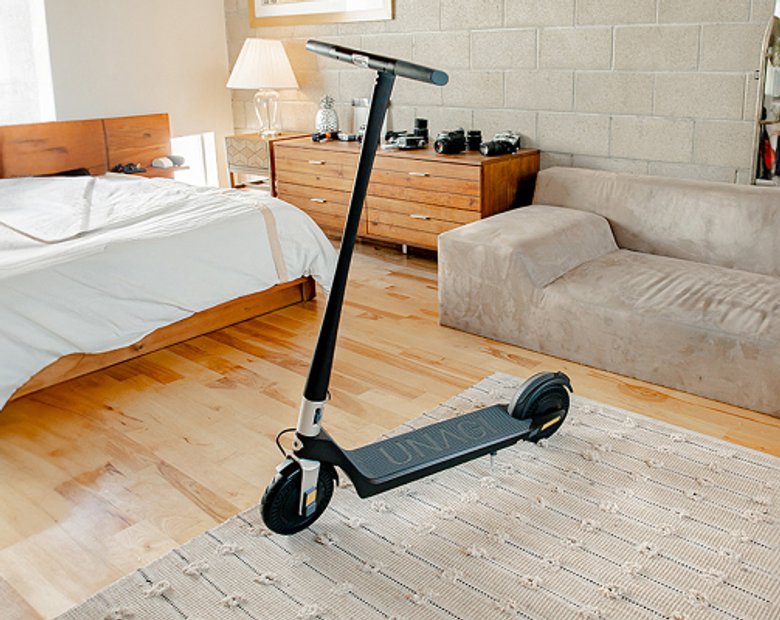
The Unagi Voyager is the best lightweight electric scooter for adults and teenagers. It is the ultraportable sequel to its predecessor, the Unagi Model One Classic.
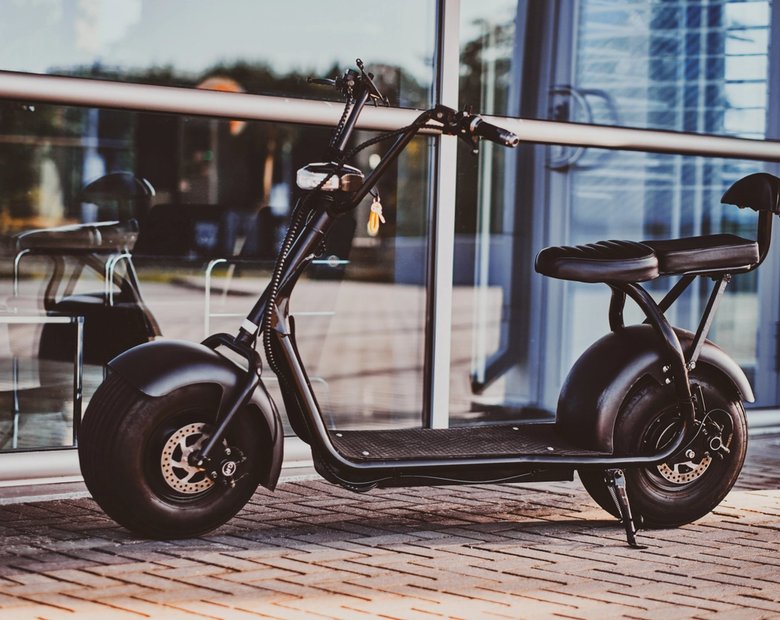
If you're wondering whether an electric scooter with a seat is right for you, this is a detailed article that would suit your need.
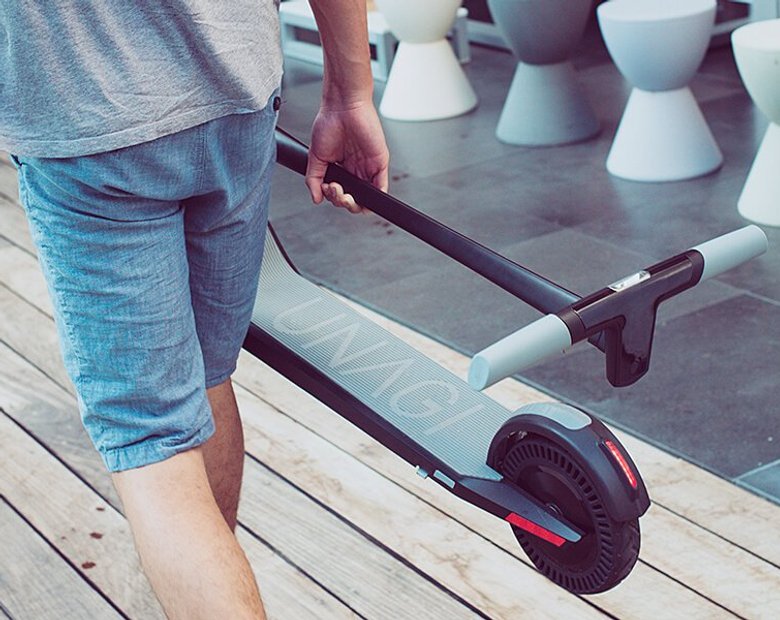
Understand which personal electric vehicle is best, the choice between an electric bike or electric scooter might already be made for you by some critical factors, including portability and storage capacity.
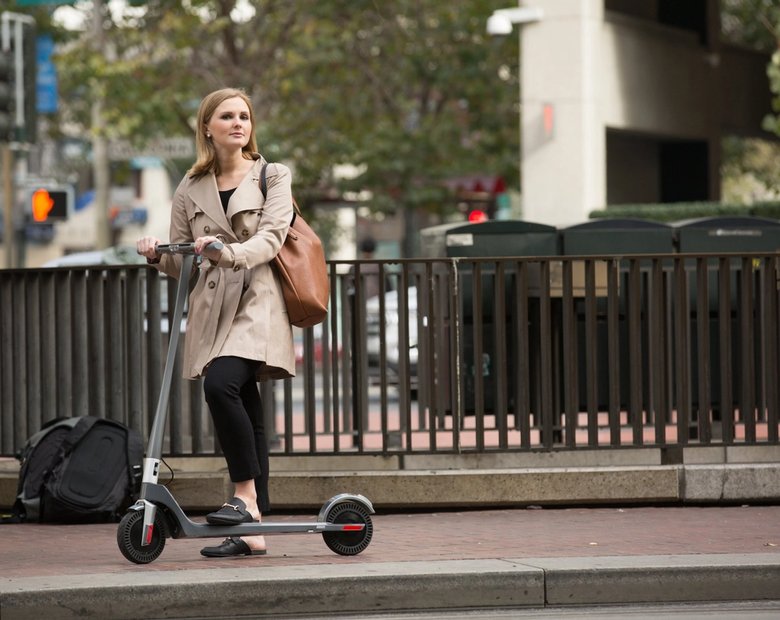
In the U.S., most states don't require a license. For those that do, they usually just ask for a regular driver's license or a learner's permit.
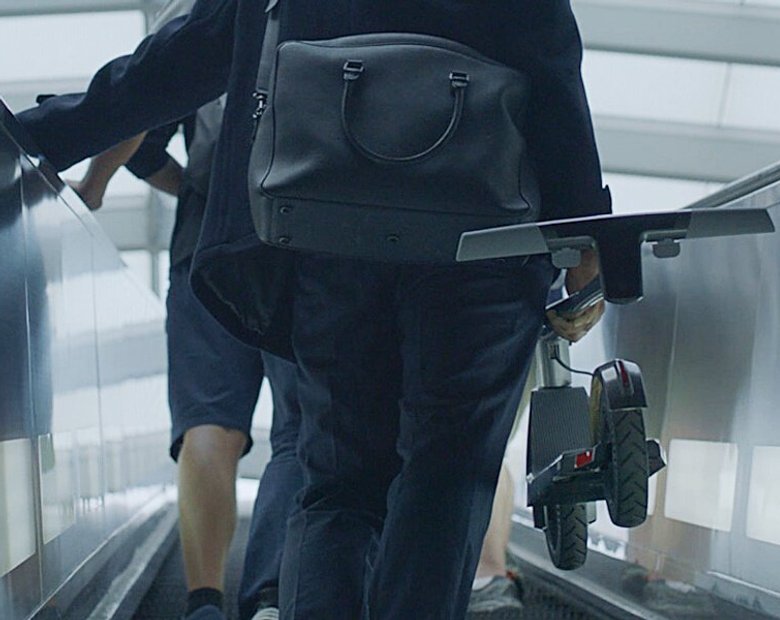
Yes, you can bring an electric scooter on a plane, but it needs to have a lithium battery smaller than 100 watt-hours, which most don't.

Manufacturers advise against riding electric scooters in the rain. The main reasons are: water can fry the electronics, make the ride dangerous, and void your warranty.

